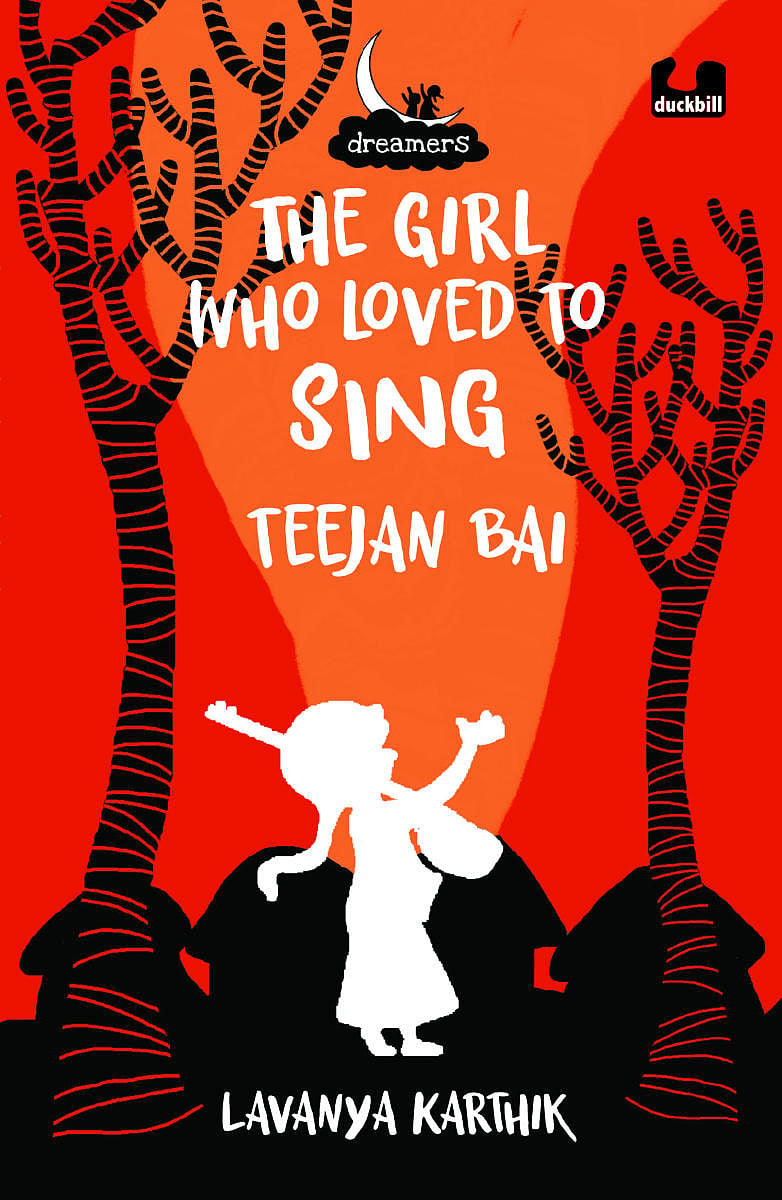
Lavanya Karthik is a prolific writer of children’s books. They stand out because of her engrossing narration and her memorable characters — whether it is a lion being invited for a feast of dosas and chutney, a superhero who is also a grandmother, a boy in a wheelchair who is not defined by his disability, or a cat who plays the flute.
Her new book The Girl Who Loved to Sing tells the story of Teejan Bai, a renowned exponent of the Pandvani art form that involves enacting stories about the Pandavas in the Mahabharata with the accompaniment of musical instruments. The 65-year-old, Teejan Bai, who lives in the Ganiyari village of Chhattisgarh, has been awarded India’s top honours such as the Padma Shri, the Padma Bhushan and the Padma Vibhushan.
The author first encountered Teejan Bai while watching the Festival of India concerts on Doordarshan in the 1980s. She says, “I was a school kid with little exposure to the diverse folk traditions of India, and I remember being awestruck and electrified by her voice and expressive face.” Lavanya Karthik has tried to recreate this magic in her book.
Remembering Teejan Bai’s ability to morph into different characters, her flashing eyes, and her signature ‘sa na na na’ at the opening of each performance, the author feels a bit disappointed that “despite being such a pioneer and a trailblazer in the art form, few kids today have heard either of her or of Pandvani.”
The research for this book included watching interviews, performance recordings and documentary films featuring the accomplished performer. The author also spent time learning about the history and evolution of Pandvani, and Teejan Bai’s contributions.
Lavanya Karthik wrote this book to celebrate Teejan Bai’s craft as a performer, and her courage to follow her dreams in spite of the obstacles that came her way. She says, “As a Dalit woman in rural India, denied education or agency, she nonetheless stood up to oppressive social conditions to carve a niche for herself in a male-dominated field. She endured abuse, neglect and excommunication to sing.”
A style of her own
According to her, Teejan Bai never learned to read or write. Her entire repertoire is sung entirely from memory. Her work is significant because she transformed the ‘kapalik’ tradition, which used to be a male bastion by introducing embellishments and creating a style that was uniquely her own. She says, “Teejan Bai also kicked the door wide open for other women to follow her into performing Pandvani.”
While reading the book, and looking at the illustrations, it seems as if she might suddenly leap off the page and appear before you. Her passionate engagement with storytelling and music is captured using the words ‘pagalpana’ and ‘jhunjhuni’, both of which are used by Teejan Bai to describe how she feels when she performs.
As a creative practitioner herself, Lavanya Karthik feels that writing is her ‘pagalpana’ — “from the electric current of excitement one feels when an idea first strikes, to the crazy pursuit of plot, characters and voice that is both the pain and the pleasure of the writing life.”
She is excited to see how readers respond to the story and the illustrations which “interpret the style and motifs of Bhil art” because “Teejan Bai hails from a Pardhi Bhil tribe.” The colour palette in the book was inspired by Teejan Bai’s bindis and saris.
Lavanya Karthik hopes that, apart from drawing inspiration, readers also see her book as a reminder of the oppression that millions of Indian women experience in the name of caste, religion and tradition. She says, “For every Teejan Bai who succeeds, there may be many who do not. I hope The Girl Who Loved To Sing can help make its readers aware of the need for change.”
Are there any plans for an audio book version featuring Teejan Bai’s voice? “None so far, but wouldn’t that be amazing?” she replies. She is currently working on a book about R K Narayan and R K Laxman and the writing of the book Swami and Friends. Another book on the cards is about the pioneering botanist E K Janaki Ammal.